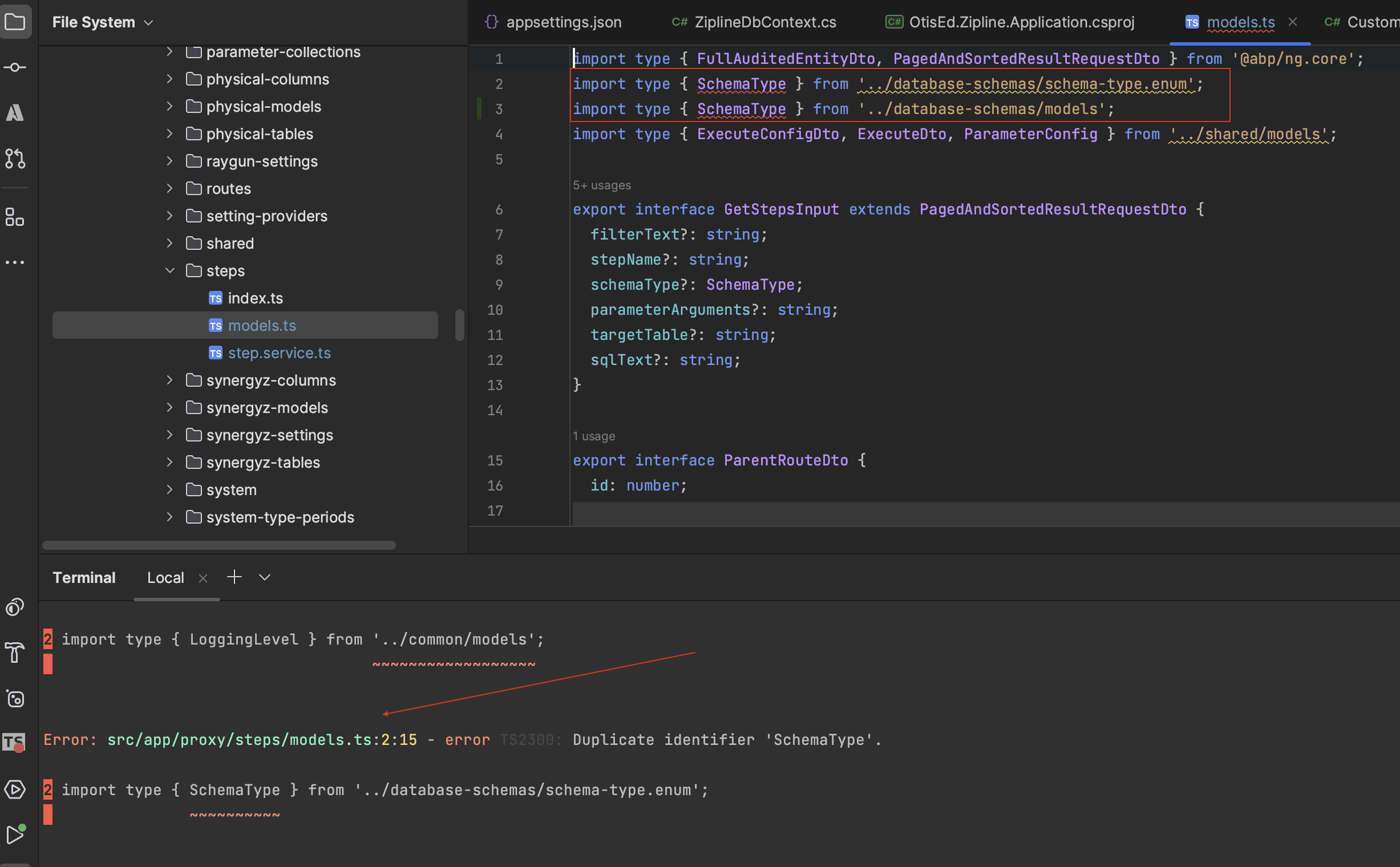We have a general question about how permissions get populated in the database. We recently altered several permissions, mostly to better align with naming conventions, and then ran DBMigrator expecting that the altered permissions would be in the AbpPermissions table. However, the AbpPermissions table did not contain our new permissions.
We tried several tests and eventually were able to reliably replicate an issue:
Our PermissionDefinitionProvider class is in the Application.Contracts project, just FYI.
Is there something we are not correctly understanding about how permissions work? Thank you for your time.
Hello. I noticed yesterday that the abp generate-proxy -t ng command is generating proxy files with incorrect imports. Almost all of my proxy model files have imports that look like:
The files have duplicate imports from /models and /*.enum. Is there a known solution or workaround for this issue?


